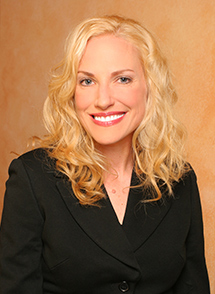
Resilience is something that is earned, necessary and flexible. The good news is the ability to bounce back snowballs. With each challenge a person grows stronger, wiser, more compassionate and able to adapt. The bad news is often resiliency comes from painful events, or situations that are difficult to face head on. Great companies are no different. The difficulties experienced in customer service, treatment protocols, operations, sales and management can be refined and used as teachable moments. Refinement, execution and excellence are the result of a spa or wellness team paying attention and expecting the best out of themselves and each other.
Attitude
Let’s think about this. Is your team a Christmas ornament that instantly shatters? Is your team a nectarine that easily bruises? Or is your team a firm rubber ball that simply bounces back? A rubber ball is so durable because of the concentric layers underneath. Those who study resilience undeniably report that those who manage change well and adapt easily are the most hardy and happy. As a leader or manager setting the bar high for adaptation will ensure that your team will consistently respond to stressors at a high functioning level.
Training
If you have ever been in a play, participated in a sport or given a presentation, you know that practice does make perfect. In fact, getting into the elusive “zone” is that rare instance of following through with learned skill sets without the struggle of thinking about your actions. For instance, responding to an allergic reaction to a seaweed body wrap or to an angry customer. Furthermore, learning from past mistakes and engraining consistent responses creates a team that can deal with almost anything without a manager present.
Involvement
Managers handle operational issues in a variety of ways. I have always been a group-think leader. I want to know the ideas and opinions of everyone including clients, employees and experts in a variety of specialties. Oftentimes an outsider, such as a consultant, can see things that those in the environment don’t. Consultants are freer to find flaws and solutions. Their ideas are without prejudice, more objective and not constrained to habit or corporate culture. Consultants treat causes and not symptoms.
Mission
Research suggests that those with a mission or sense of purpose lead longer, happier, healthier lives. Many companies write mission statements because it is a check item on the list of starting a business. Unfortunately, the mission sits idly accumulating dust. How can your team comprehensively perform if there isn’t a common goal? Great leaders in our industry are focused and consistent. Articulating the mission in all areas of the organization, every day is imperative to leading a seamless team.
Morale
In the military morale means firmness in the face of danger, fatigue and difficulties. How do leaders create this kind of team? Truly caring about everyone and seeing situations clearly and without prejudice ensures a strong loyalty both in clients and employees. Strong, decisive leaders are also empathetic listeners. Nothing can damage morale more quickly than a leader who dithers, is uncertain or who is slow to act. People trust leaders who act with a firm sense of urgency and see the light at the end of the tunnel. Additionally, employees are free to fully serve the client when leadership is strong. Willingness to see situations as they really are and respond with experience and confidence makes for a strong team.
Resilience isn’t book learning or following a formula. Resilience is something that is learned and cultivated by leading in the front lines. The adage, “fall down 7 times, get up 8” is a lot of the essence of bouncing back. Moreover, acting truthfully with oneself and others creates a clear arena for constant improvement. Resilience should be a key component to any management strategy.
 My contact is
My contact is









